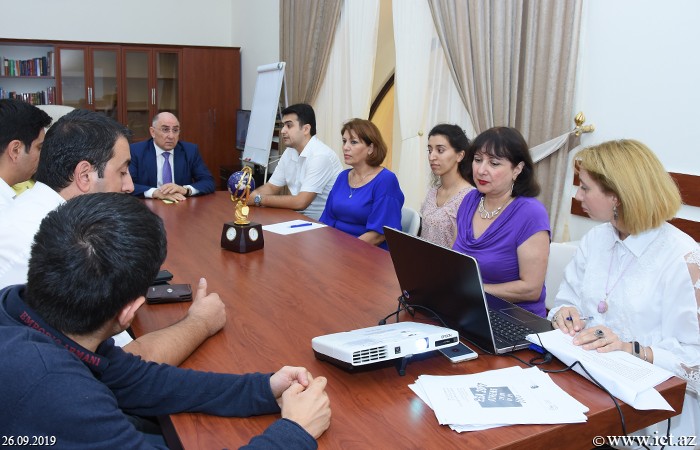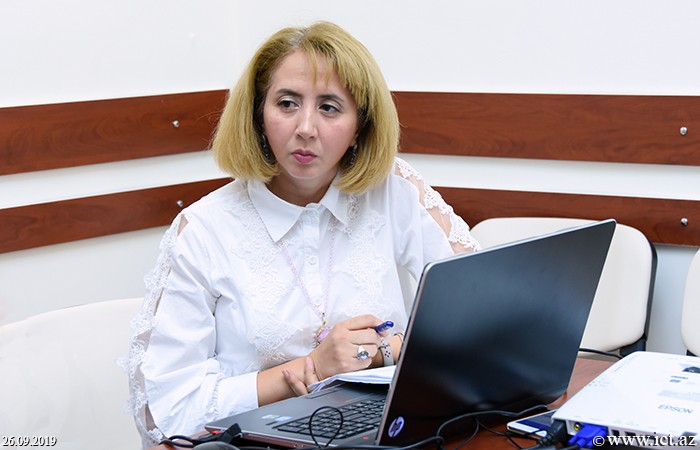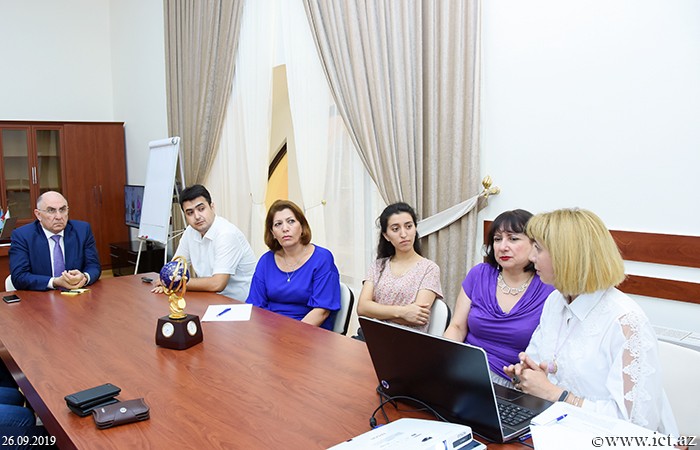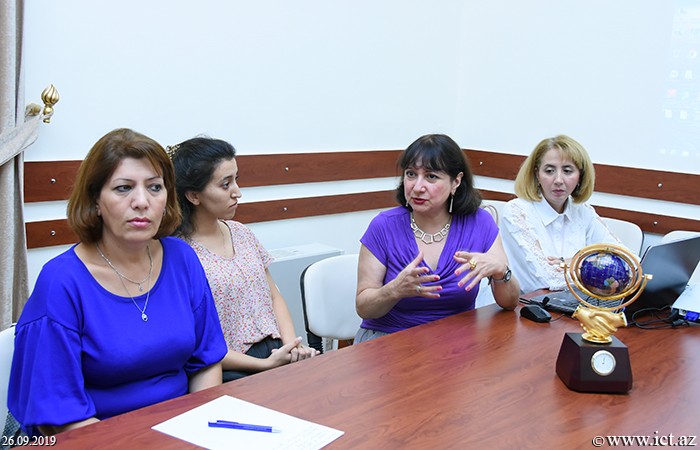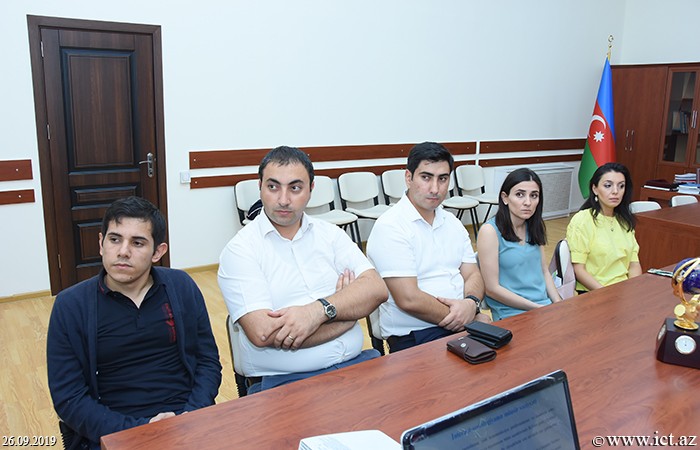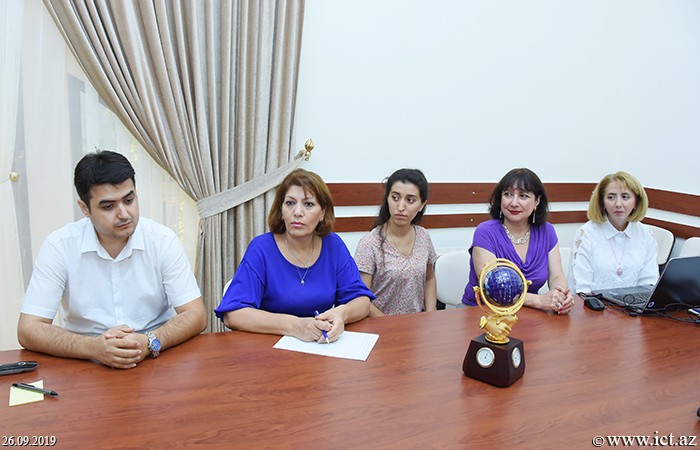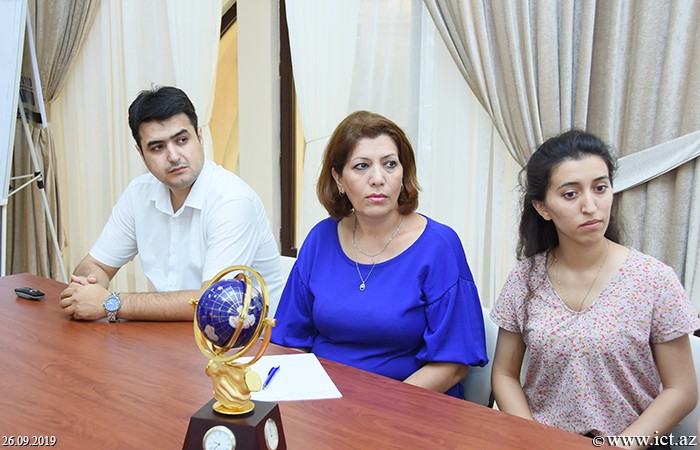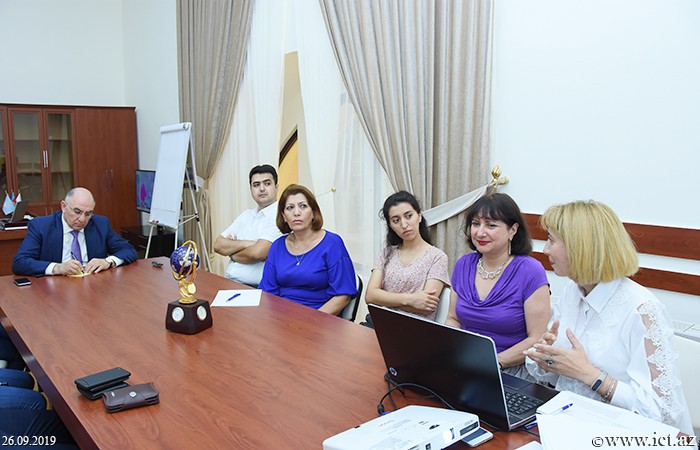NEWS
Online research methods explored in Internet sociology
The next scientific seminar of the Department No. 19 of the Institute of Information Technology of ANAS was held. The opening speech was opened by the vice-president of ANAS, director of the institute, academician Rasim Alguliyev. He informed that the seminar was devoted to the topic “Current State and Problems of Internet Sociology”.
Programmer Konul Dashdamirova gave detailed information on the history of Internet sociology, its current state, digital sociology, online research methods, world experience in Internet sociology and situation in Azerbaijan. He said that Internet sociology studies the existing information environment in society, interacts with people during the exchange of information, envisages the use of sociological theories and methodology on the Internet.
The reporter said that Internet sociology had begun to form in the late 1990s and that digital sociology had been formed since the 2000s. She also presented the Digital In 2019 report by We are social and Hootsuite, providing information on the world's active mobile and Internet, as well as the number of social media users, and active user accounts on social platforms.
Cyber-ethnography, an online research methodology, focused on studying communities and cultures on the Internet, with the use of online reporting methods (Internet research, Internet science, iScience, or web-based techniques), by researchers, to use the ethnographic methods of reporting. She spoke about Internet-focus groups, the online research technology used to collect high-quality data.
Speaking about international experience in the field of Internet sociology, she noted that for the first time American sociologists began using the Internet as a means of collecting sociological data, emphasizing that the first sociological survey of Internet users was conducted in 1994 by J. Pitkov.
She spoke about companies such as Custom Research, Harris Interactive, Angus Reid Group, conducting mass online surveys using Internet panels, as well as projects to study Internet audiences in Russia, such as Web-vector, Gallup Net "and" Omnibus ". According to her, the research within the framework of the Web-vector project includes the number of personal computer users, the number of email users, the size of the Internet audience, the frequency and volume of Internet use, the socio-demographic composition of the Internet audience, and so on.
An exchange of views on the report took place, questions and suggestions were voiced.
© All rights reserved. Citing to www.ict.az is necessary upon using news

